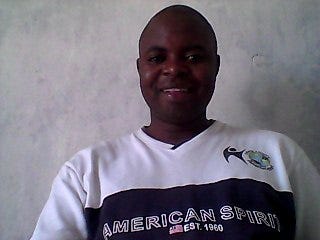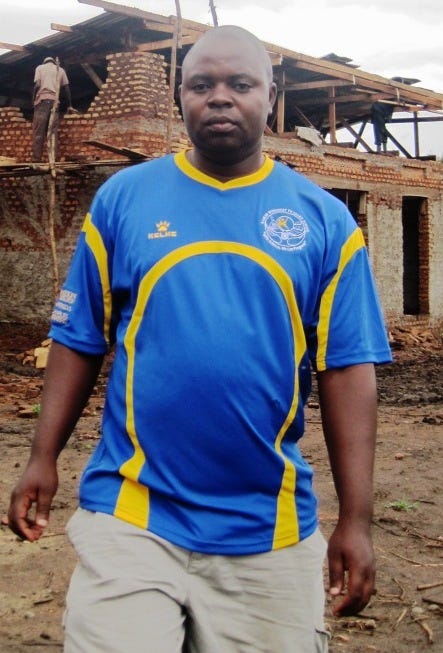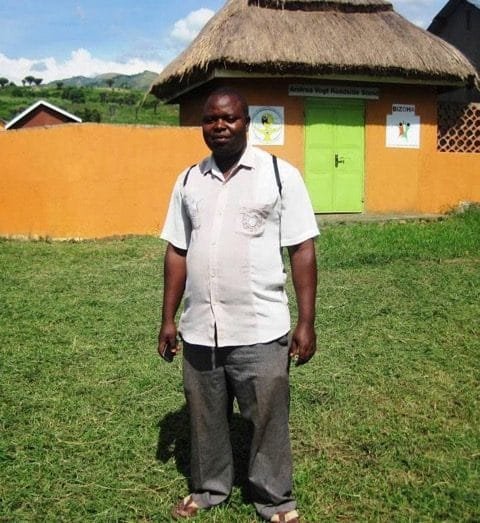[Previously published in Humanist Voices]
Robert Bwambale is the founder of the Kasese United Humanist Association (KUHA) with “the goal of promoting Freethought in Uganda.” The association is affiliated with the extremely active Uganda Humanist Association (UHA). In March, the UHA held a conference in Kampala whose theme was Humanism For a Free and Prosperous Africa. The Kasese United Humanist Association is a member organization in the IHEYO Africa Working Group, and has participated in humanist conferences. He is also the director of a few primary schools set up to encourage a humanistic method of learning.
Scott Douglas Jacobsen: How did you become involved in humanism? When was the moment, or series of moments, that eventually led into you becoming an open humanist?
It was in the year 2000 that I started being skeptical about the natural world and things in it, and began asking myself, religious people and other people both in school and out of school about these things. Their answers to my queries did not satisfy me, so I became more curious and increasingly more critical religion. Through my research online, I stumbled about humanists. Humanism/Atheism and Rationalism. I later joined organized humanism by putting in place a community based organization.
Was there a family background that gave you a religious grounding?
Yes, I am from an Anglican back ground.
Is humanism demonized in Uganda, or an accepted but minority philosophical and ethical worldview?
Humanism is demonized by religious zealots who say Bwambale’s school, for e.g., teaches satanism. They want to paint a bad picture of humanism so that people can hate it and so the majority can continue believing that being religious is the only way to success and a great life which actually is not the case.
To some extent though, I think Humanism in Uganda is an accepted minority philosophical & ethical worldview.
You are the school director for Kasese Humanist Primary School. What tasks and responsibilities come with being the chairman for the Kasese Humanist Primary School?
As School Director, common tasks are:
Planning for the school
Identifying projects, lobbying for support and publicity of Kasese United Humanist Association & its associated schools.
Ensuring the workers are paid as an appreciation for their hardwork
Engaging in construction efforts of the schools and its sister projects.
Ensuring I establish connections between the sponsored pupils and their sponsors and notifying the latter 3 times in a year about the progress of the students.
When did this become a calling for you — teaching the young?
In 2010, I together with other colleagues and members of Kasese United Humanist Association thought it would be a wise idea if we created a school and one year later we opened Kasese Humanist Primary School.
Kasese Humanist Primary School was only founded in 2011, which is a relatively short time ago, and is run by the Kasese United Humanist Association. It is a secular school grounded in science education. How does the Kasese Humanist Primary School differ from the majority of other primary schools in Uganda?
Humanist Schools and orphanages differ from religious schools in the ways below:
We teach religious education on comparative terms.
Our learners are encouraged to think for themselves and are given opportunity to think freely without any sort of commands.
We cherish evolutionary science other than creation science.
Our school welcomes learners from all religions, it matters less if one is religious or proclaimed non religious since we look at our schools as a center or source of knowledge and not a place of worship.
We have secular posters or messages on classroom walls or compounds.
We observe and celebrate secular days by holding celebrations, happy moments or memorial events.
There are no religious instructions or observance of religious tenets.
We do not indoctrinate our learners to any religion or belief system but what we do is to enlighten our learners and allow our learners to be curious, explore and come up with their perceptions.
We do not perform rituals of any kind.
It has a number of clubs and teaches during the day to a limited number of students. Are there after-school programs to cater to other students?
Yes, we do have after school programs like: Running activities, computer lessons, training of vocational skills, playing a key board, music dance and drama, weaving, knitting and gardening
Is the primary school in high demand? Or do you generally face difficulty in getting and keeping pupils?
Yes, there is a high demand for primary school education to accommodate learners, if you look at the numbers. Uganda has scores of children who need primary education. However, the level of illiteracy is still high as some parents either out of ignorance or of poverty don’t know the value of education and don’t use the schooling provided. Therefore some times we have to force parents to keep their kids in school.

There are 3 campuses of the school now. So within 5/6 years, or even lesser, the primary school developed up to three campuses. What were the honest failures and successes on the road to development of Kasese Humanist Primary School up to the present?
Kasese Humanist School has developed over the years from being a nursery & primary school and now has 3 campuses in a period of 6 years now. We earlier this year opened the Secondary Section. In spite of this we have had successes and failures.
One of our biggest challenges is misconceptions by locals who don’t know the meaning of Humanism or being a humanist. Therefore some locals tend to associate humanism to devil worshipping or to satanism. The rumours are fuelled by enemies of the schools: mostly religious zealots and selfish locals who are enemies of development.
The Payment of salary to the staff has sometimes been delayed or they get paid in instalments when the collection of fees has been unsuccessful as some parents pay little by little. Also, outbreak of diseases is common among learners due to the living conditions in their homes. Poverty, ignorance remains a key factor affecting public health here. But there have been many successes that have kept us going.
One of our greatest advantages is that fact that our schools on permanent homes owned by ourselves and so all learning spaces have classrooms.
The Child Sponsorship scheme where more than 100 children studying in our schools have sponsors who meet their tuition needs, has been extremely helpful. Moreover, the school also has the potential to be involved in a few income generating activities in local industry and farming around here. In addition, my projects have got a fair international attention and this has been possible because of my activities on the internet. My online presence has exposed me to organizations and individuals who have helped a great deal in boosting up my works financially, morally and materially.

What are some of the main campaigns and initiatives of the Kasese Humanist Primary School?
For the moment, the following are our main priorities
Promoting humanism
Encouraging debates
Popularising the comparative study of religion
Imparting training in vocational skills
Organising computer lessons
Encouraging activities such as gardening
Campaigning against witchcraft campaign
Spreading awareness about eco huts.
Setting up a botanical gardens project for eco tourism & out door learning.
Coordinating our letter Exchange & pen pal program for our learners.
Running our Child sponsorship program.
Sustaining our Reading for Pleasure program.
Running programs by Kasese freethinkers academy
In general, what are the perennial threats to the practice of humanism in Uganda?
Religious bigots who do not understand humanism and what it entails end up making ignorant statements about it and misguide people.
Proprietors of school proprietors, most of whom are powerful in religious circles also paint a bad picture in an effort to smear our schools out of envy.
How can people get involved with the Kasese Humanist Primary School, sponsor a child, even donate to staff salaries?
You can help my work by
–> Sponsoring a child at any of my schools.
–> Volunteering in my projects as teachers, nurses or farmers.
–> Spreading the message to friends, relatives and working colleagues about our innovations.
–> Donate finances or material to my initiatives.
–> Offer moral support, knowledge, advice to my projects.
–> Donate to staff salaries or even sponsor a classroom.
Any closing thoughts or feelings based on the discussion today?
I think Kasese Humanist Primary school and Kasese Humanist Secondary School is on the right track. Setting our schools on a science-based and humanist foundation is a good thing that other schools in Uganda should be working towards.
It remains our core duty to enlighten people about who we are and what we stand for.
– M. Robert Bwambale








Article Discussion